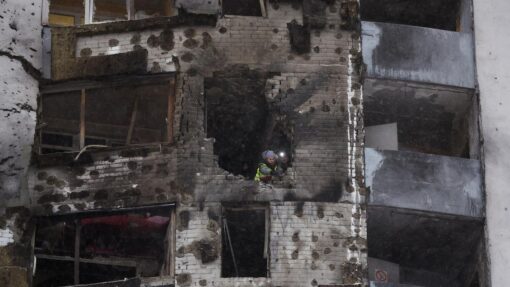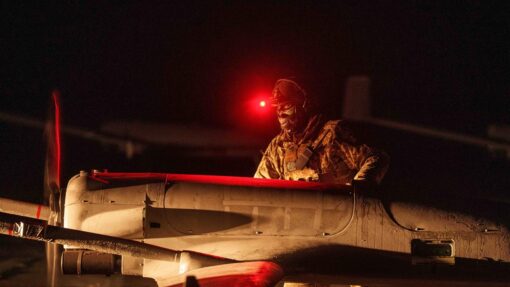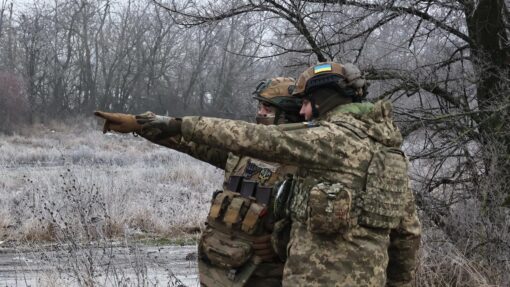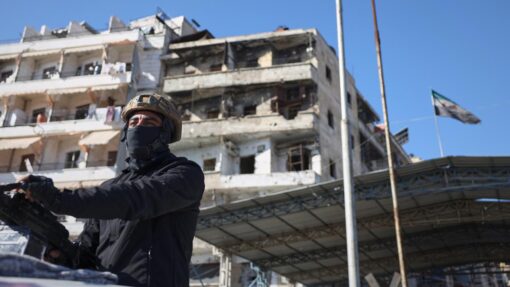Russia grain deal halt puts people in need at risk: UN
|
Russia has halted participation in the year-old United Nations-brokered deal that lets Ukraine export grain through the Black Sea, spreading a sense of dread in poorer countries where people fear price rises will put food out of reach.
Hours earlier, a blast knocked out Russia’s bridge to Crimea in what officials called a strike by Ukrainian sea drones.
Russia said two civilians were killed and their daughter wounded in a “terrorist attack” on the road bridge, a major artery for Russian troops fighting in Ukraine.
The Kremlin said there was no link between the attack and its decision to suspend the grain deal, over what it called a failure to meet its demands to implement a parallel agreement easing rules for its own food and fertiliser exports.
“Unfortunately, the part of these Black Sea agreements concerning Russia has not been implemented so far, so its effect is terminated,” Kremlin spokesman Dmitry Peskov told reporters on a conference call.
UN Secretary-General Antonio Guterres signalled that Russia’s withdrawal meant that the related pact to facilitate Russia’s grain and fertiliser exports was also terminated.
“Today’s decision by the Russian Federation will strike a blow to people in need everywhere,” he told reporters.
Russia said it would consider rejoining the grain deal if it saw “concrete results” on its demands but that its guarantees for the safety of navigation would meanwhile be revoked.
In the United States, the White House said Russia’s suspension of the pact “will worsen food security and harm millions”.
Ukraine is one of the world’s biggest exporters of grain and other foodstuffs and any interruption could drive up food prices across the globe, especially in the poorest countries.
Shashwat Saraf, the emergency director in east Africa for the International Rescue Committee (IRC), said the effects would be far-reaching in Somalia, Ethiopia and Kenya, which have been facing the Horn of Africa’s worst drought in decades.
Ukrainian President Volodymyr Zelenskiy raised the prospect of resuming grain exports without Russia’s participation, suggesting Ukraine would seek Turkey’s support to effectively negate the Russian de facto blockade imposed last year.
“We are not afraid,” spokesman Serhiy Nykyforov quoted Zelenskiy as saying.
“We were approached by companies, ship-owners. They said that they are ready, if Ukraine lets them go, and Turkey continues to let them through, then everyone is ready to continue supplying grain.”
The blast on the road bridge to Crimea could have a direct impact on Russia’s ability to supply its troops in southern Ukraine, and reveals the vulnerability of Russia’s own Black Sea infrastructure to devices such as seaborne drones: small, fast remote-controlled boats packed with explosives.
Images showed a section of the road bridge had come down and traffic was halted in both directions, although a parallel railway bridge was still operational.
Blasts were reported before dawn on the 19-km bridge, which Putin ordered built after seizing and annexing the peninsula from Ukraine in 2014.
Ukraine gave no official account of the blasts but the country’s media quoted unidentified officials as saying Ukraine’s Security Service (SBU) was behind it.
SBU spokesman Artem Dekhtyarenko euphemistically alluded to the idea that the agency would reveal the details of the blast after Ukraine won the war, without directly claiming responsibility.
Ukraine says the bridge is illegal and its use by Russia for military supplies makes it a legitimate target.
It was hit by a massive explosion and fire in October.
The grain deal was hailed as preventing a global food emergency when it was brokered by the UN and Turkey last year.
Turkish President Tayyip Erdogan, the grain deal’s sponsor, said earlier on Monday that he still believed Russian President Vladimir Putin wanted it to continue.
Russia has agreed three times in the past year to extend the Black Sea deal, despite repeatedly threatening to walk out.
It suspended participation after an attack on its fleet by seaborne Ukrainian drones in October, leading to a few days when Ukraine, Turkey and the UN kept exports going without Russia.
Reuters


